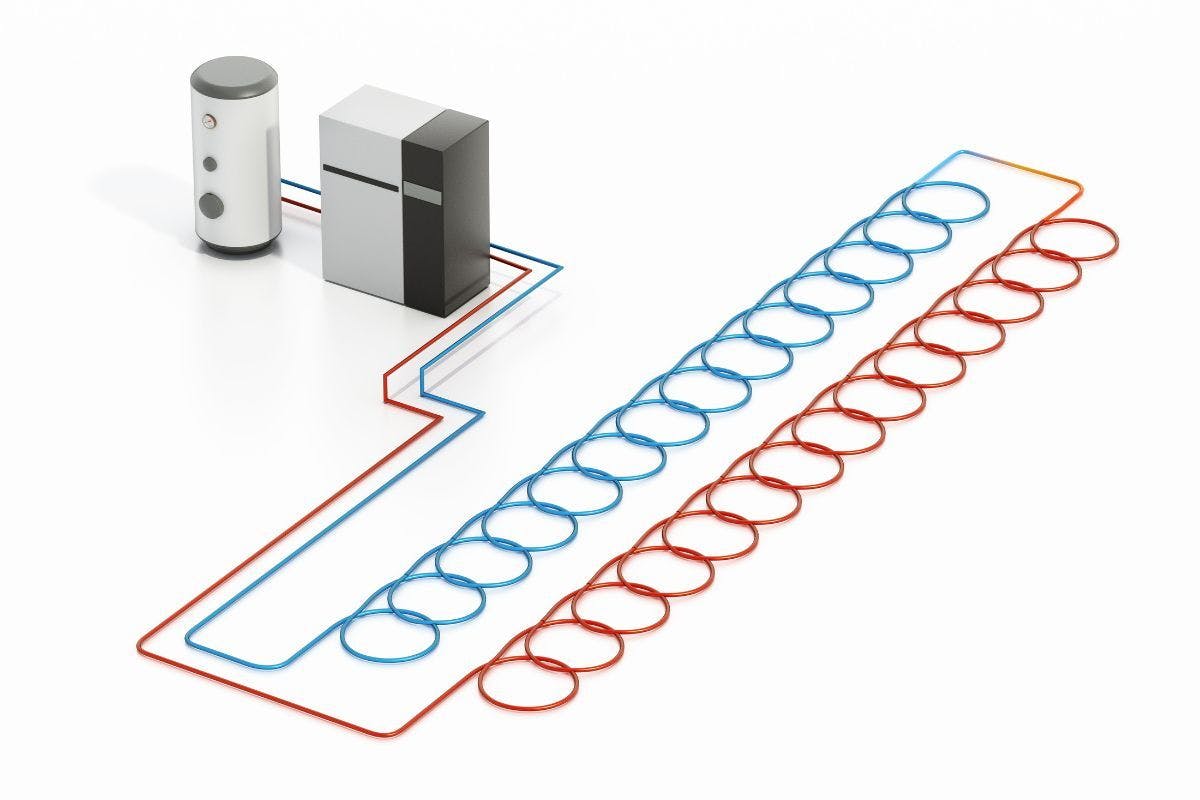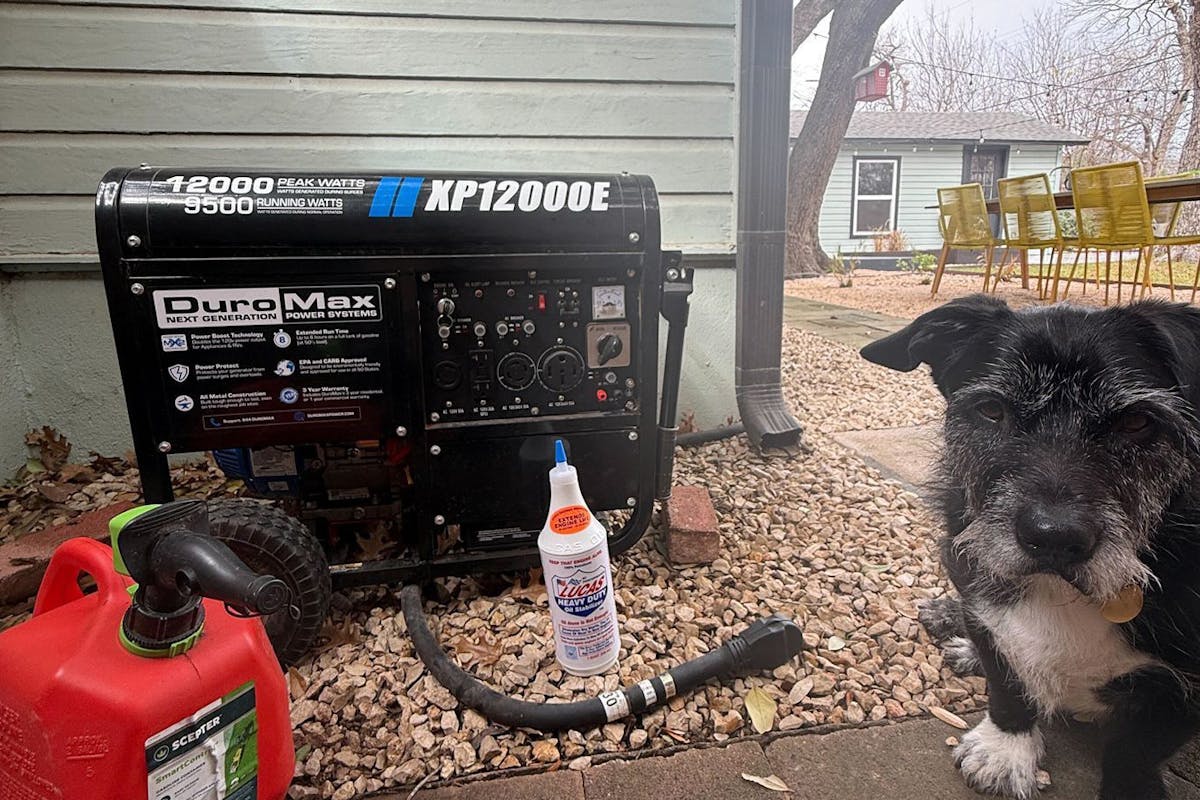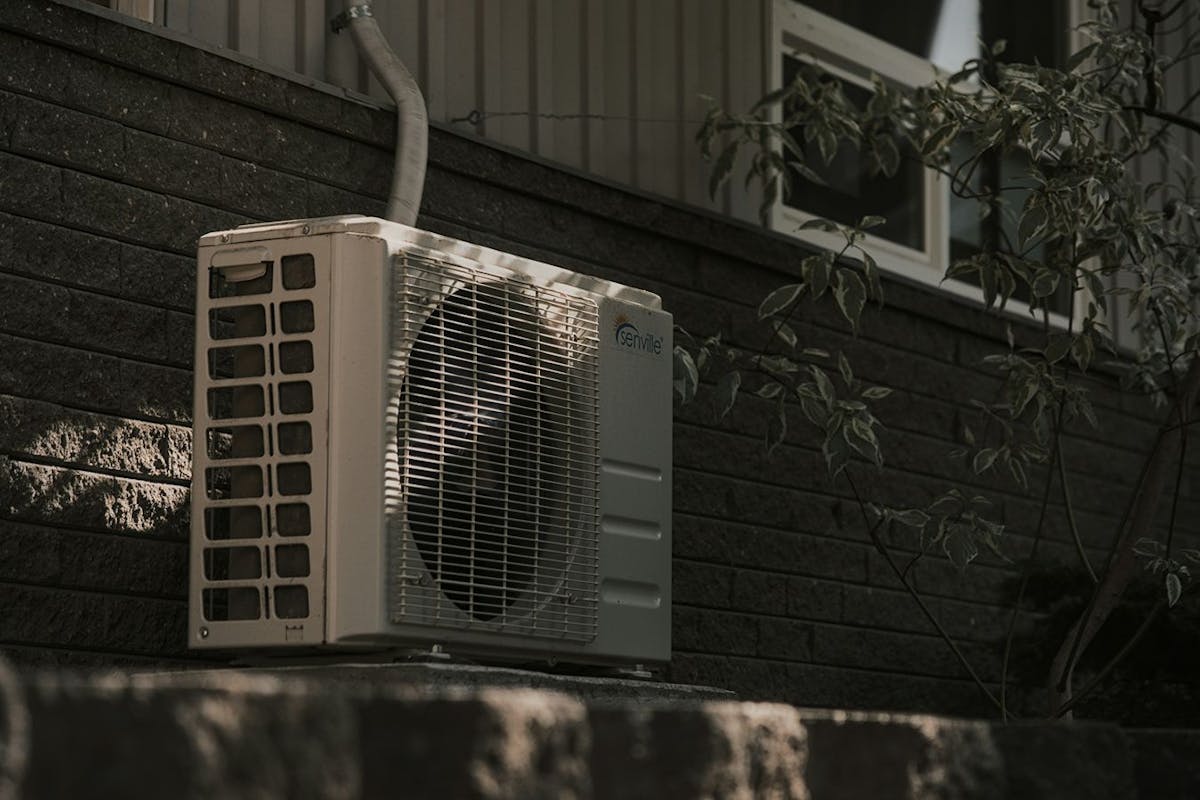Geothermal Heat Pump Pros, Cons, and Incentives
Last edited
Author
Andrew Giermak
Solar and Electrification Writer and Editor
Editor
Andrew Blok
Electrification and Solar Writer and Editor

A new HVAC system for your home is a major investment. One innovative, efficient, durable, and clean choice for an increasing number of homes is a geothermal heat pump. Unlike traditional HVAC systems, a geothermal heat pump doesn't rely on fluctuating outdoor air temperatures; instead, it taps into the stable, consistent temperature of the earth right below your property.
You can learn more about one way to have low energy costs and a reduced carbon footprint for many years of home heating and cooling.
See how much you can save with a new HVAC system from Palmetto
What Is a Geothermal Heat Pump?
A geothermal heat pump provides heating and cooling using the stable underground temperature as a natural source for energy transfer.
Underground or in deep water, such as a well or pond, the temperature remains very consistent. It’s usually 50-59 degrees Fahrenheit, warmer than the air temperature in winter and cooler in summer.
A geothermal heat pump system uses pipes or loops buried underground or underwater, vertically or horizontally (usually depending on the depth needed or property available). The pipes are heat collectors. Fluid runs through them, absorbing or releasing heat.
The other components of a system are similar to those of a more traditional air source heat pump system. There’s an interior heat pump with a compressor, refrigerant gas or fluid, and a heat exchanger, followed by a distribution system to move the conditioned air throughout the house.
From energy.gov
Geothermal Heat Pumps Are Energy Efficient
Geothermal heat pumps are more energy efficient than other heating and cooling systems and standard air-source heat pumps. A geothermal heat pump system can also be used for home water heating, further increasing energy and bill savings.
Geothermal heating, cooling, and water heating uses little fossil fuel and will likely reduce your home’s carbon footprint. Energy Star, run by the US Environmental Protection Agency, reports a geothermal heat pump with Energy Star certification uses an average of 61% less energy than a standard heat pump and saves users about $830 a year.
Geothermal heat pumps reach their maximum energy efficiency while providing heat. A system can reach 300%- 600% energy efficiency, or putting out 3-6 watts of heat for every watt of energy it consumes while heating.
See how much you can save with a new HVAC system from Palmetto
Geothermal Heat Pump Cost and Incentives
The full cost of a geothermal heat pump varies. The actual components of a system are only a fraction of the expense. The installation is the larger portion of the cost. A new system can range from $5,000-$45,000, according to online retail sources.
The range comes from a multitude of factors. One factor is the type of loop, open or closed, horizontal or vertical, and whether it’s underground or in a body of water. The installation process has many variables and differences from home to home or site to site. The size of the home and property, too high of a water table, special soil or excavation needs, zoning and permit requirements, and labor costs are some factors that can drive the overall cost.
The Residential Clean Energy Tax Credit includes geothermal heat pumps. Eligible geothermal heat pumps and associated work are eligible for the credit, which is a 30% federal tax credit for installations done by the end of 2025.
Geothermal heat pumps must be Energy Star certified to qualify. More information on restrictions and the needed IRS form can be found on this Energy Star page.
Some states, localities, and utility companies have rebates or other financial incentives. You can search for incentive programs on a database run by N.C. State University.
Geothermal Heat Pumps Pros and Cons
If you’re considering a decision as major as a geothermal heat pump for your home, you want to weigh the pros and cons.
Geothermal heat pump pros
- Superior energy efficiency compared to standard heat pumps, furnaces, and other HVAC systems
- Efficiency and reliability in extreme temperatures
- Durable through bad weather conditions
- It’s possible to have heating, cooling, and water heating in the same system
- Reduced carbon footprint
- Quiet
- Long lifespan, 20-25 years for the heat pump and up to 50 years for the underground or underwater piping
Geothermal heat pump cons
- The upfront and installation expenses
- Need to have space for the system
- Potential for ground or water pollution in the case of an accident or leak
Is a Geothermal Heat Pump Right for You?
Getting a geothermal heat pump for your home heating and cooling is a big call. Some circumstances make it more likely to be the right option for you.
- When your area has extreme temperatures, hot and/or cold, and you see higher utility bills during those stretches
- You have the available land
- You want a heating, cooling, and water heating system with less maintenance
- You want a heating, cooling, and water heating system with a long lifespan
- You want to decrease your home’s fossil fuel consumption
To learn more about what you could save with home energy upgrades, download the new Palmetto App. You can track your energy usage, see savings possibilities for your home, and earn real discounts on energy-saving devices in the app’s shop. You can also use Palmetto's Savings Maximizer to explore ways to save energy and money.
See how much you can save with a new HVAC system from Palmetto
Frequently Asked Questions
Is a geothermal heat pump worth it?
A geothermal heat pump can be worth it for your home heating, cooling, and water heating in some circumstances. It’s more likely to be the best system in areas with extreme heat or cold as that’s when a geothermal heat pump will provide the best efficiency and savings compared to other types of systems.
How much do geothermal heat pumps cost?
Geothermal heat pumps generally are a major expense. The installation, with the labor, excavation, and other work to land or property, is a large portion of the total cost. A new system can range from $5,000-$45,000 based on a survey of retail sources.
Is a geothermal heat pump right for all climates?
Geothermal heat pumps work in all climates. There are residential geothermal heat pumps in all 50 states. Whether it’s the best choice for your home is a different question. It’s more likely to be the best financial call in areas with more extreme heat and/or cold.
Disclaimer: This content is for educational purposes only. Palmetto does not provide tax, legal, or accounting advice. Please consult your own tax, legal, and accounting advisors.



